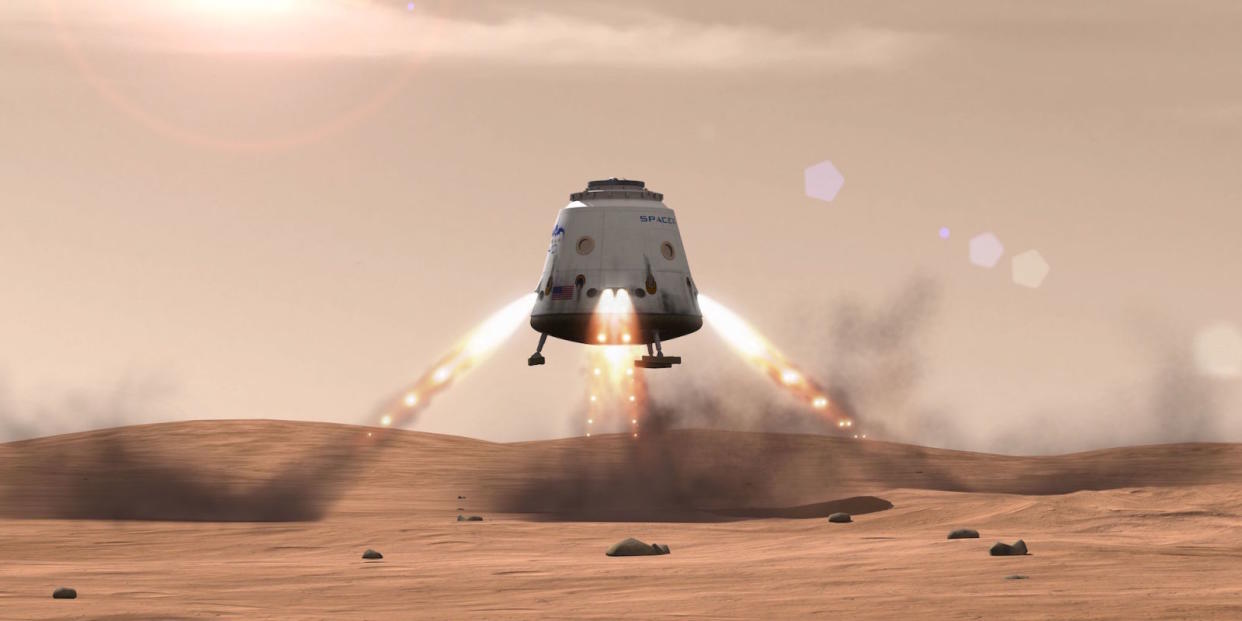Why 2018 Will Be the Make-Or-Break Year for SpaceX

This has been a monumental week for Space Exploration Technologies Corp., or SpaceX. And we mean that in the "build-a-statue-for-the-owner" sense. Elon Musk entered the space launch market with the intent of fundamentally changing the industry. Now it seems like 2018 will be the year we know if he succeeded.
Here's what's on the docket.
1) Launching a Military Satellite To Break a Monopoly
The U.S military and spy agencies don't have many options when it comes to launching national security satellites. Just one, in fact-the United Launch Alliance, a joint venture of Lockheed Martin and Boeing. That changed this week when SpaceX landed a $82.7 million contract to send a U.S. Air Force satellite into space.
Winning the contract was a political and engineering victory for Musk. The political effort included a lawsuit against the Air Force (dropped after the military decided to include SpaceX to compete) and some blunt testimony to Congress. The engineering victory was more subtle, but involved rounds of analysis and oversight from the Air Force. When a rocket exploded during a launch last year, SpaceX had to show all its customers it was able to diagnose and fix the problem, and transparently. It did. Now the launch just has to succeed.
ULA didn't even compete for this 2018 launch, citing its workload. Many observers feel like the company was playing hard to get, trying to spotlight how vital they are to the government launch business. But the Air Force seemed to call ULA's bluff and went with Musk's much cheaper startup.
The payload of the 2018 launch is important-a next-generation global positioning satellite-but it's not a one-of-a-kind asset like some other national security or NASA launches, which probably made the government feel more comfortable going with the new guy. Even so, if the launch is delayed or something goes wrong, ULA may have the last laugh.
2) Opening the World's First Commercial Orbital Launch Site

SpaceX's plan to dominate the solar system includes building a spaceport on the beach in Brownsville, Texas. The site was supposed to be open in 2016, but problems have pushed that back to 2018. According to local media, the delay was caused by troubles stabilizing the foundation. For months, dump trucks have been bringing dirt to create a decent place to build the facilities. By the end of the process, 310,000 cubic yards of soil will be needed.
Building a custom-made spaceport is a colossal challenge, but it'd be worth it for Musk. There are many more players at the established spaceports in Florida and California, which means SpaceX has to wait its turn for a launch. When you're sharing the queue with NASA and the Air Force, your private space missions can be put at the back of the line. Reaching a fast launch and recovery tempo is vital to making access to space easier and cheaper. That's why SpaceX has been pushing the recoverable rocket program so hard, and why this launch site is so important.
3) Heading to Mars

In true SpaceX fashion, the most nebulous 2018 idea is the one that got the most attention. This week Musk announced via Twitter that SpaceX would attempt to land a probe on the surface of Mars. The announcement came with artist's renders of a Dragon Heavy (called "Red Dragon") launching and a vertically landed craft sitting on the red planet. Eight SuperDraco thrusters will set the craft down on the surface. SpaceX's growing track record of successful, rocket powered landings is clearly being applied to the Martian expedition.
Going to Mars has always been Musk's end game, but this is the first (more or less) concrete plan to use his hardware to get there. The idea is to land and collect some samples. Landing on Mars is easier than landing on the Moon-that atmosphere really helps slow your spacecraft-but it's still a massive challenge. The lessons learned through such a mission would be of real value to followup missions, and that's one reason NASA has said it will help SpaceX. "In exchange for Martian entry, descent, and landing data from SpaceX, NASA will offer technical support for the firm's plan to attempt to land an uncrewed Dragon 2 spacecraft on Mars," said NASA deputy Administrator Dava Newman.
Musk is expected to show the details at the International Astronautical Conference this summer in Mexico.

